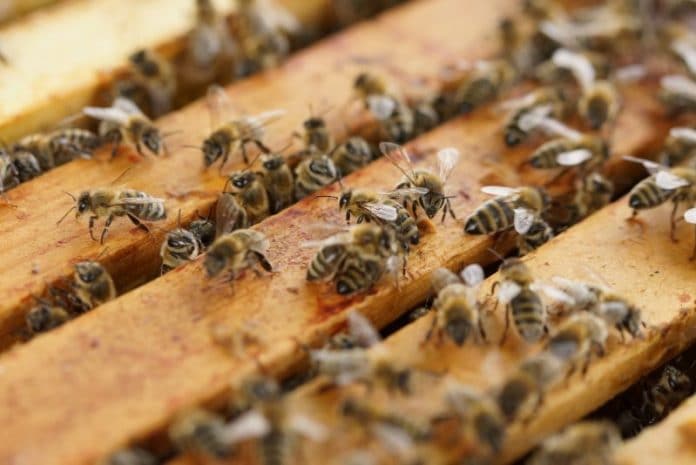In the USA, industrial hemp has been shown to help support bee populations during periods where other food sources are scarce.
In Northern Colorado, hemp flowers between late July and late September – a time when many other species of plants have completed blooming, resulting in food sources for pollinators being in short supply.
While hemp doesn’t produce nectar, it does create pollen, which bees can use to feed their young. Bee pollen contains a range of vitamins, minerals, carbohydrates, lipids and is approximately 40% protein.
In a presentation earlier this month at Entomology 18, researchers from Colorado State University reported on a trapping survey in two experimental plots of industrial hemp. The researchers not only observed a large quantity of bees working hemp fields, but also significant diversity.
“We recovered 23 unique bee genera and a diverse number of other insects in hemp fields. Apis mellifera (38%), Melissodes (25%), Peponapis (16%) and Bombus (5%) accounted for over 80% of the total bee abundance in our samples,” they state.
Not all hemp is created equal when it comes to bees – crops grown for CBD aren’t useful, just those that cultivated for seed and fiber.
The findings are very good news given the issues that bee populations face, but the researchers also sounded a warning.
“While the diversity of bees on flowering hemp indicates its ecological value, expanding hemp cultivation is likely to draw pests to the crop requiring pest control measures.”
Hemp farming is expected to grow rapidly in the USA should the Hemp Farming Act of 2018 be passed – and all indications are that it will. Earlier this month, Senate Majority Leader Mitch McConnell guaranteed the 2018 Farm Bill will include his provision.
While the industry’s prospects look bright and the crop is hardy, hemp is affected by a number of insect pests that can retard its growth and cause other damage. Unfortunately, some pest control methods aren’t bee-friendly and bees have fallen victim to insecticides targeting other species in relation to other crops.
The researchers state integrated pest management practices will be needed to protect pollinators and maintain ecosystem functions.


